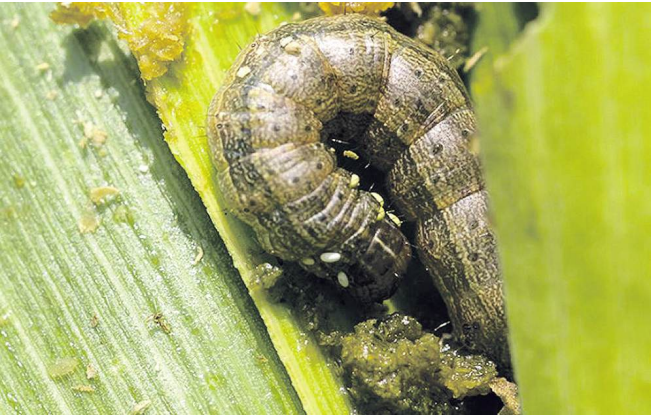

The Food and Agriculture Organisation has appealed for partners to raise Sh1.3 billion annually to control the spread of the fall army worm.
Through its Global Action for Fall Army worm Control, FAO aims to protect the food and nutritional security, as well as the livelihoods of more than 600 million vulnerable people worldwide.
According to a recent report by the organisation from the Global Symposium on Sustainable Fall Army worm Management, the pest feeds on more than 80 types of crops, including maize, wheat, rice and sorghum.
This has devastating effects on yields and livelihoods across more than 70 countries in South America, Africa and Asia.
The pest was first reported in March 2017 in western Kenya and has since spread nationwide, as noted by the Kenya Agricultural and Livestock Research Organisation.
If uncontrolled, the pest can cause yield losses of up to 100 per cent.
Fall army worm, or spodoptera frugiperda, is an insect pest with moths as the adult stage and destructive larvae (caterpillars).
The pest spreads rapidly across borders due to international travel and trade.
“This requires countries to act collectively to manage its spread. Once established, FAW is virtually impossible to eradicate, but it can be sustainably managed to limit the damage it causes,” FAO said.
A 2021 report from the International Plant Protection Convention showed pests account for up to 40 per cent of global crop losses annually, costing an estimated $70 billion in lost yields.
This jeopardises the livelihoods and food security of 600 million vulnerable people in the world’s poorest regions.
“The number and variety of crop pests are increasing, driven by global challenges such as climate emergencies, land use changes and biodiversity loss,” the report said.
“Enhanced connectivity through travel and international trade enables crop pests to move further and faster than ever before. In Africa alone, the estimated annual cost attributed to invasive alien species is $65.58 billion.”
Launched in 2019, the Global Action Initiative ensures a coordinated approach at country, regional and global levels.
The initiative will support concrete efforts in eight demonstration countries and more than 50 pilot countries.
In December 2019, FAO initiated the Global Action for Fall Army worm Control as an urgent response to the rapid spread of the pest.
The three-year initiative focuses on implementing direct and coordinated measures to enhance prevention and sustainable pest control capacities globally, complementing ongoing FAO activities.
FAO shows Global Action is active in eight demonstration countries, including Kenya, Burkina Faso, Cameroon, China, Egypt, India, Malawi and the Philippines, as well as more than 50 pilot countries.
The report was released by FAO during the Global Symposium on Sustainable Fall Army worm Management in Beijing, China.
One key recommendation among the 16 calls to action is to prioritise the needs and harness the entrepreneurial and innovative potential of youth and women in detecting, monitoring and managing emerging and future invasive pests.
Another call to action is to strengthen capacities for developing and adopting innovations in surveillance, diagnostics, monitoring, early warning and management of invasive pests, along with improvements in institutional settings, policies and regulatory frameworks.
Frances Williams, director of Social Sciences at the Centre for Agriculture and Biosciences International, said they would serve as the coordination hub.



 © The Star 2024. All rights reserved
© The Star 2024. All rights reserved